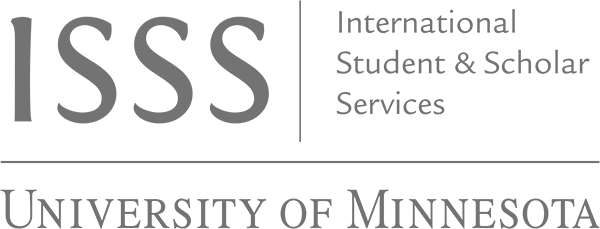There are a variety of ways to obtain lawful permanent residence (a green card) through employment in the United States. In many cases, the department/employee must work with outside counsel to obtain permanent residence.
EB-1 Priority Workers
Extraordinary Ability (EB-1A) (self-petition)
- Individual with extraordinary ability in sciences, arts, education, business or athletics which has been demonstrated by sustained national or international acclaim and whose achievements have been recognized in the field through extensive documentation. individual seeks entry to continue work in the area of extraordinary ability and Entry will substantially benefit prospectively the U.S.
- No employer needed as sponsor.
- This category is intended for the small percentage of individuals who have risen to the very top of their field of endeavor.
Outstanding Researchers (EB-1B) (petition by employer)
- Individual who is recognized internationally as outstanding in a specific academic area.
- Requires 3 years of experience in teaching or research in the academic area, usually post PhD. However, experience in teaching or research prior to PhD can be counted if degree is now acquired, and applicant already has a consistent 3 year record of very strong research that has been recognized as outstanding in the academic field. This is appropriate for an individual who is hired for a) a tenure (or tenure track) teaching position, b) a comparable position at university or institute of higher education to conduct research, or c) a comparable position to conduct research with a private employer if it employs at least 3 persons full-time in research activities and the departmental, division or institution has achieved documented accomplishments in an academic field.
- No labor certification is required although an offer of employment is required in the form of a letter from the sponsoring employer.
EB-2 Exceptional Ability or Advanced Degree Workers
Advanced Degree Worker/Labor Certification (petition by employer)
- Advanced degree means any United States academic or professional degree or a foreign equivalent degree above that of baccalaureate. An employer must go through the Labor Certification process. A labor certification is a finding by the Department of Labor (DOL) that there are not sufficient U.S. workers in the geographic area of employment who are able, willing, qualified (or equally qualified, in the case of college and university teachers) and available to do the job in question, and that the employment of an individual will not adversely affect the wages and working conditions of similarly employed U.S. workers.
- Special Handling for College and University Teachers: Labor Certification regulations allow college and university employers of college and university teachers to use the results of the employer's own competitive recruitment procedure. The regulation also allows such employers to select the individual if he or she is more qualified than any U.S. applicant. ISSS prepares special handling Labor Certification petitions for Tenure-Track faculty.
National Interest Waivers (NIW) (self-petition)
- National Interest Waivers (NIWs) are a unique vehicle used to exempt the position from Labor Certification and allows a person to self-sponsor for immigrant status.
- An applicant for a national interest waiver must meet a three pronged test (called the NYSDOT test):
- The self-petitioner must seek employment in an area of work that is of substantial intrinsic merit;
- The self-petitioner must demonstrate that the proposed benefit will be national in scope; and
- The self-petitioner must establish that he will serve the national interest to a substantially greater degree than would an available U.S. worker having the same minimum qualifications.
- To meet the third prong of this NYSDOT test, an applicant must do more than merely work in an area of intrinsic merit that is national in scope, as required under the first two prongs. The applicant must distinguish himself from the hypothetical minimally qualified U.S. worker in one of two ways:
- By presenting a record of past achievement (e.g., a track record of accomplishment) that would reasonably lead to tangible benefits to the national interest; or
- By demonstrating that he/she is playing a key or critical role in a project that will yield tangible benefits and is national in scope.
EB-3 Skilled Worker, Professional, or Other Worker
Skilled Workers
- Individual must be able to demonstrate at least two years of job experience or training. Relevant post-secondary education may be considered as training.
- Must be performing work for which qualified workers are not available in the United States.
- A labor certification and a permanent, full-time job offer are required.
Professionals
- Individual must be able to demonstrate that they possess a U.S. baccalaureate degree or foreign degree equivalent to a U.S. baccalaureate degree related to the occupation, and that this baccalaureate degree is the normal requirement for entry into the occupation.
- Individual must be performing work for which qualified workers are not available in the United States.
- Combinations of degrees less than a baccalaureate degree and/or experience may not be substituted for a baccalaureate degree. The degree must be in the form of an official college or university record.
- A labor certification and a permanent, full-time job offer are required.
Unskilled Workers (“Other Workers”)
- Individual must be capable, at the time the petition is filed on their behalf, of performing unskilled labor (requiring less than two years training or experience), that is not of a temporary or seasonal nature, for which qualified workers are not available in the U.S.
- A labor certification and a permanent, full-time job offer are required.
Note: Petitions for certain classifications must be filed with an original individual labor certification from the U.S. Department of Labor.
